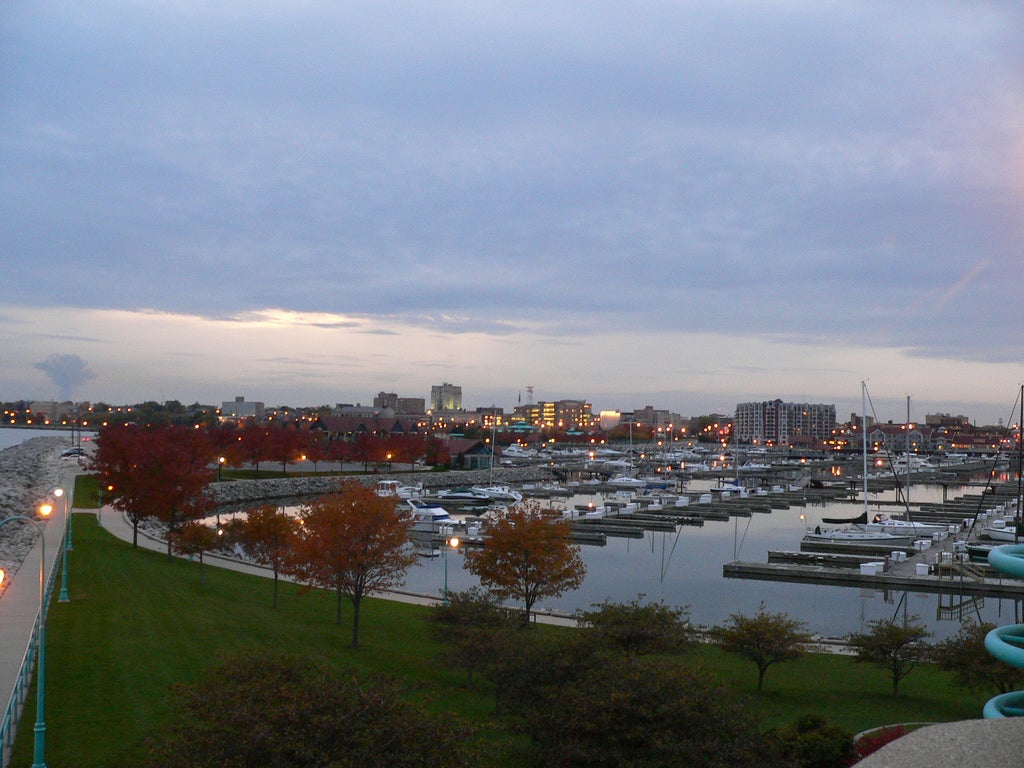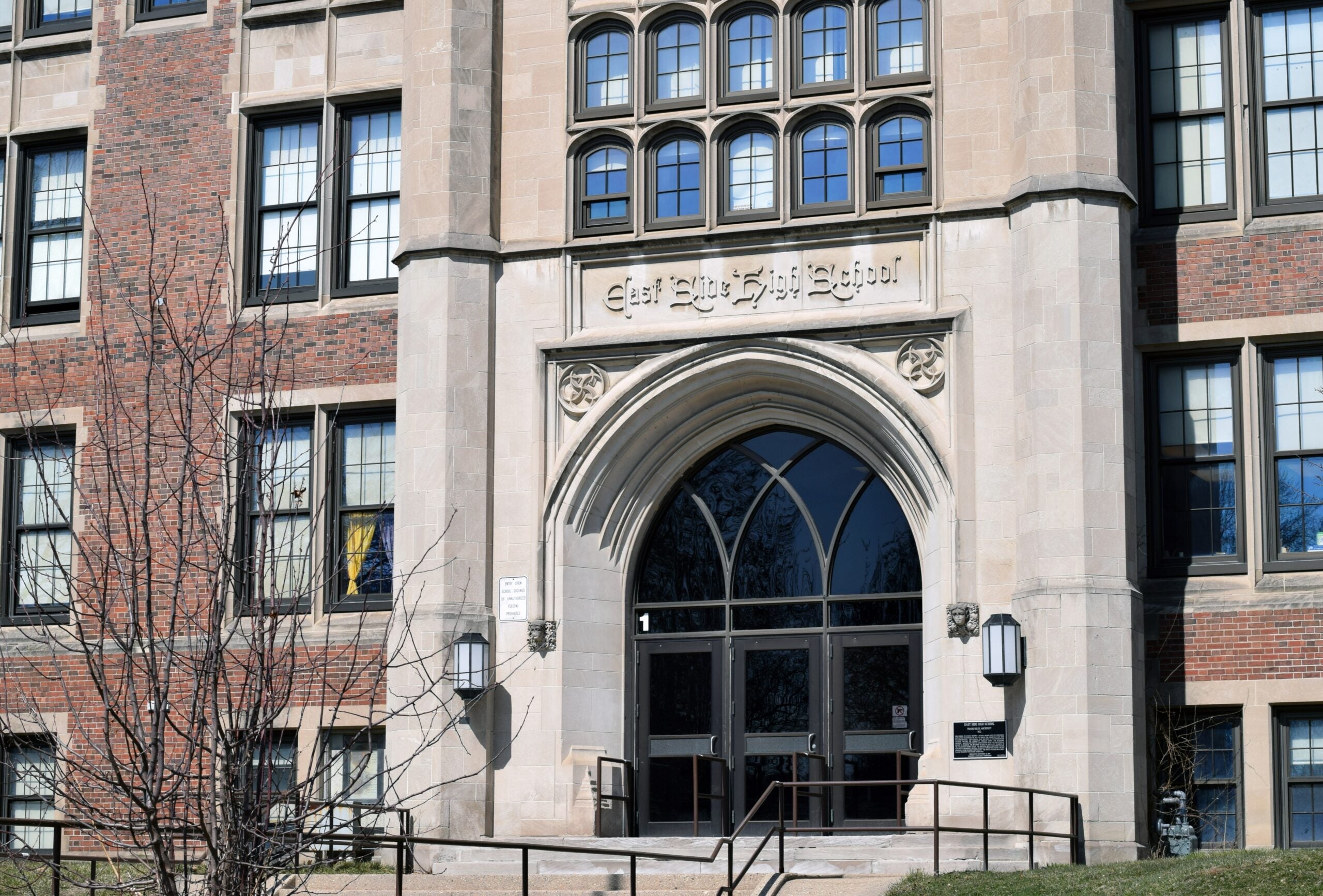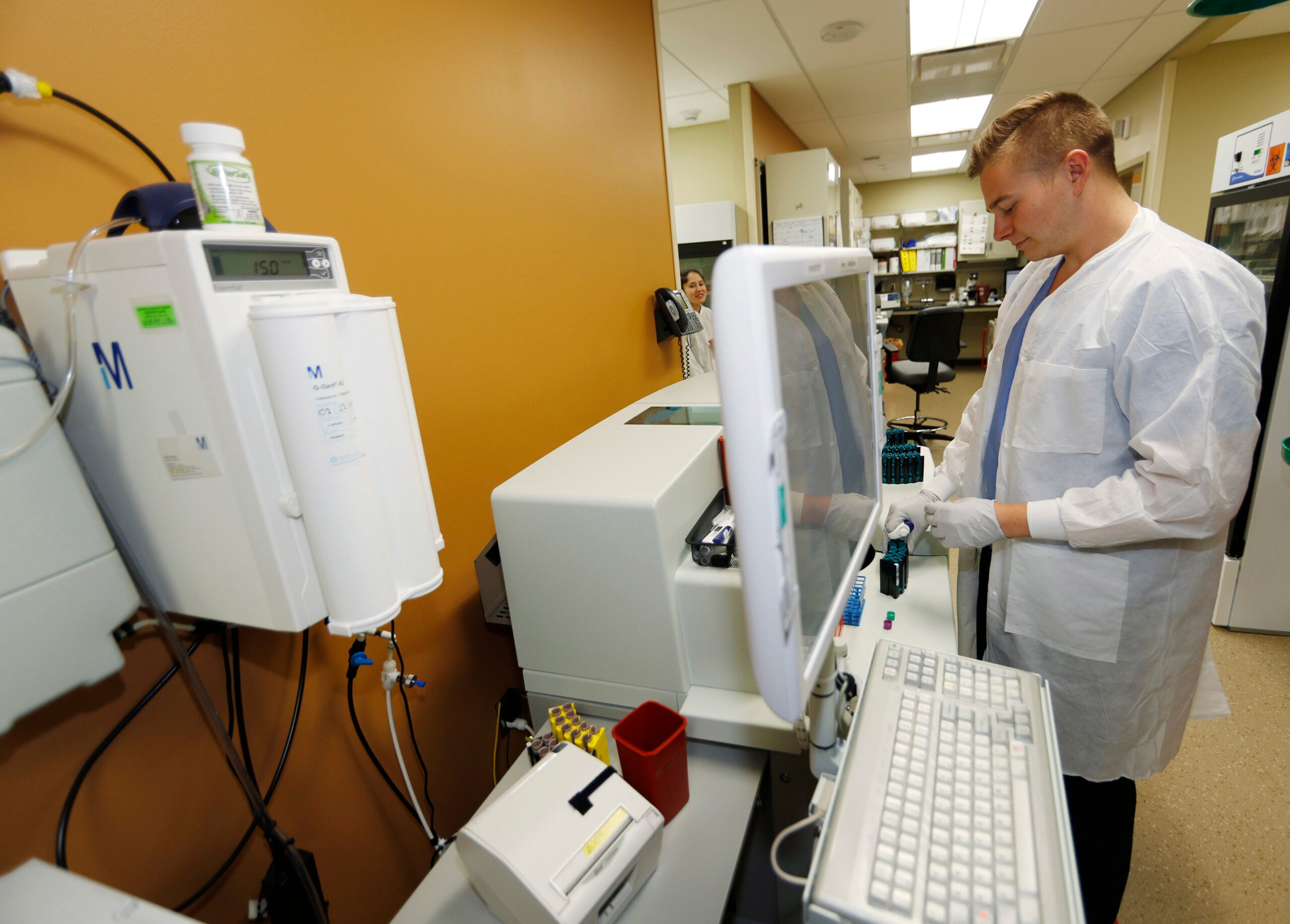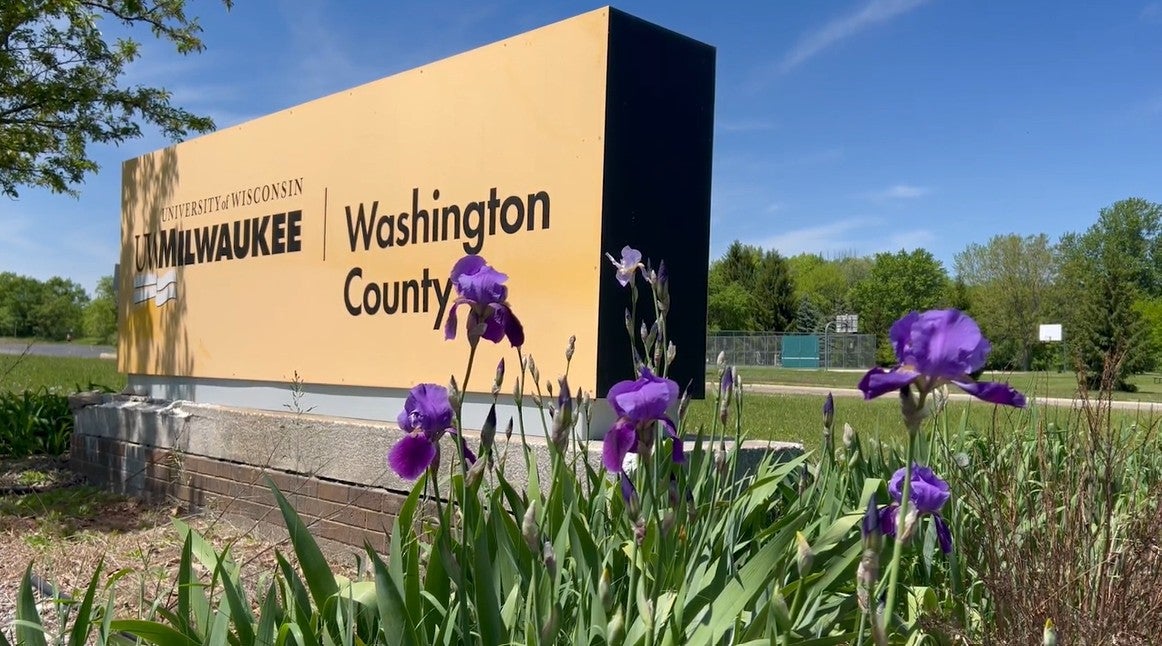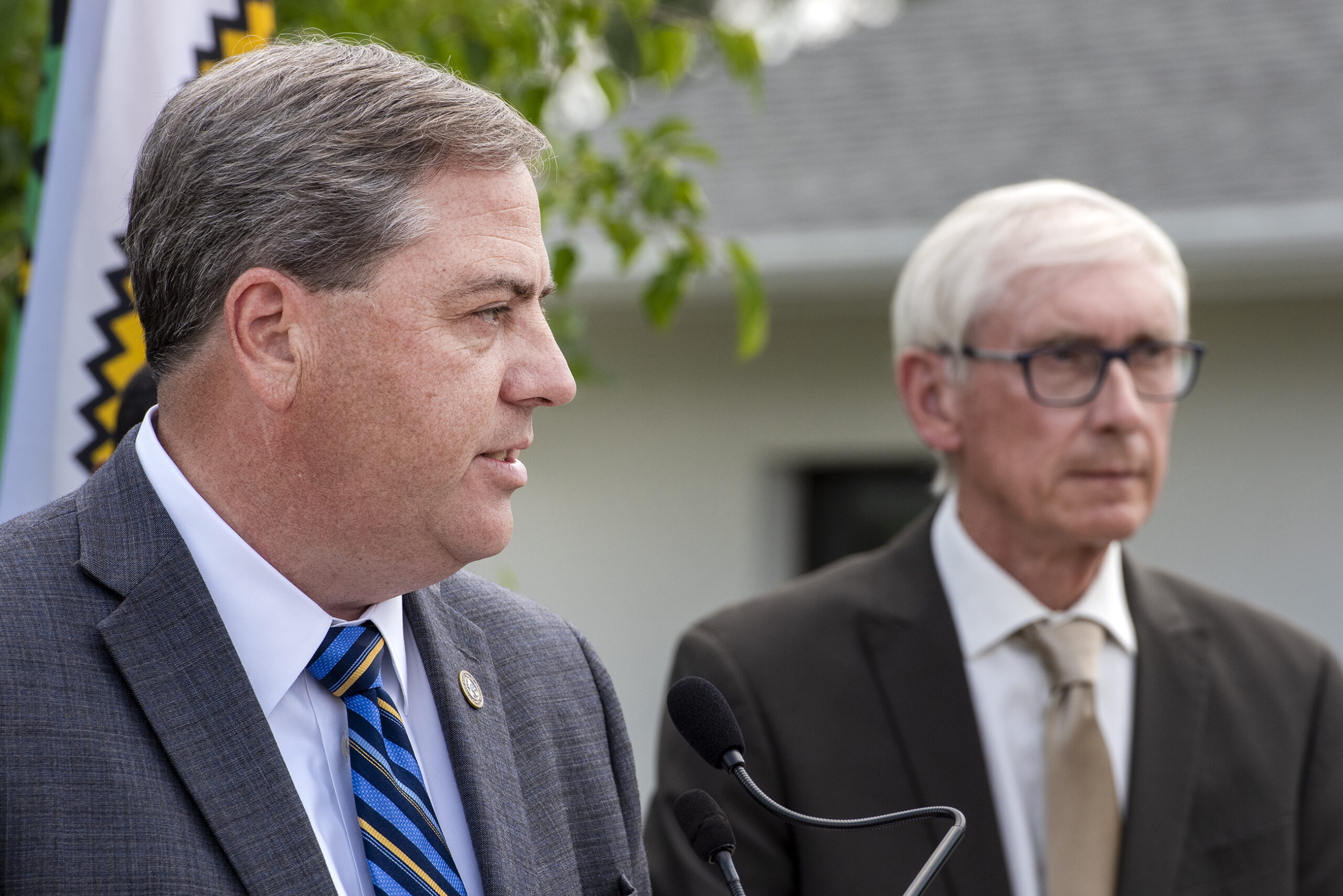Before his sudden death earlier this year, former Racine County Executive Jonathan Delagrave had envisioned the county would introduce a 0.5 percent sales tax to help with future budget problems.
Thursday night, that wish came true, after the Racine County Board of Supervisors voted to implement the 0.5 percent sales tax.
It’s a move that’s expected to generate around $20 million for the county each year after it starts in April. Without it, interim Racine County Executive Thomas Roanhouse said the county would have had to cut 156 positions.
News with a little more humanity
WPR’s “Wisconsin Today” newsletter keeps you connected to the state you love without feeling overwhelmed. No paywall. No agenda. No corporate filter.
“Those cuts would have substantially affected services we deliver, especially in the Sheriff’s Department, the Justice Department and Human Services,” Roanhouse said.
Wisconsin has a statewide sales tax of 5 percent. Most counties across the state have their own 0.5 percent sales tax on top of the state sales tax.
A law that overhauled local government funding in Wisconsin allowed the city of Milwaukee and Milwaukee County to raise their sales taxes above the extra 0.5 percent. In Milwaukee County, the sales tax is now at 5.9 percent, while the sales tax in the city of Milwaukee is at 7.9 percent.
But that law didn’t allow other communities to do the same.
Other municipalities across the state have since said they’re still facing budget problems even with the passage of the state’s shared revenue deal. Some communities are also turning to referendums to ask voters to let them raise the local property tax levy.
Roanhouse said American Rescue Plan Act funds helped Racine County stave off cuts, but those funds have since expired. Counties in Wisconsin are largely funded through aid from the state and property taxes, both of which have not kept up with the pace of inflation.
“There was only a matter of time we would have to go to the toolbox, like 69 other counties, and implement a sales tax,” Roanhouse said.
After Racine County passed the sales tax, only Waukesha and Winnebago counties remain as the two counties to not have their own 0.5 percent sales tax. However, that could change in Waukesha County.
Earlier in the month, Waukesha County Executive Paul Farrow introduced a measure to implement the 0.5 percent sales tax.
“Since 2006, our revenue has been constrained by state law, and it has not kept pace with the rising costs of providing essential services,” a statement from Farrow’s office said.
“Each year, county residents contribute approximately $1.5 billion in sales and income taxes to the state government in Madison. In return, our county receives just $60 million in state aid, ranking us as the second lowest in per capita state aid among Wisconsin counties,” the statement added.
But Farrow withdrew the proposal Tuesday to “seek additional public input on the issue and pursue a change in state law to would allow the County to implement a sales tax at a rate less than current state law permits.”
This week, state Rep. Dave Maxey, R-New Berlin, said he plans to introduce a bill to allow counties to implement a sales tax at either 0.1 percent, 0.2 percent, 0.3 percent, 0.4 percent or 0.5 percent. Currently, counties are only allowed to not have a sales tax or to have a 0.5 percent sales tax.
“This change will empower local governments to tailor their tax rates to better suit their financial situations, ensuring they can meet community needs without resorting to the maximum rate,” Maxey said in a statement.
The statement said the bill will be introduced at the start of the next legislative session.
Farrow was not available for an interview Friday, but a spokesperson wrote in an email that he “remains committed to identifying a sustainable revenue source to meet our budgetary needs.”
Winnebago County Executive Jon Doemel was also not available for an interview. In a statement, he said there is no “active pursuit” to implement the sales tax in 2025 in Winnebago County.
“I’m interested in finding solutions to finding the right amount of resources and taxing the citizens just enough for them,” Doemel said. “Winnebago County has challenges ahead of us. The first step is sound planning and fiscal health forecasting, not adding a tax during high inflationary periods for our residents and visitors.”
Wisconsin Public Radio, © Copyright 2026, Board of Regents of the University of Wisconsin System and Wisconsin Educational Communications Board.

